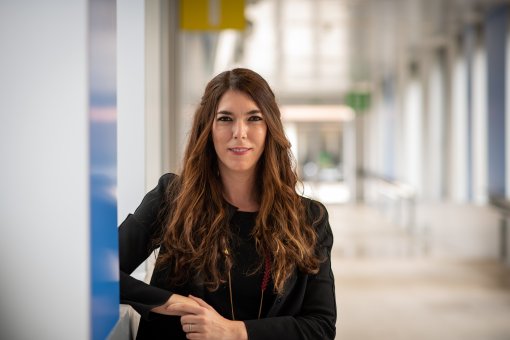Images
Participants
Contact

Given by the CRIS Cancer Foundation, this award seeks to promote and consolidate the careers of outstanding researchers in Spain by providing a grant of €1,250,000 per candidate over 5 years.
The different categories of this call have given six grants to projects that will develop treatments and therapies for patients with acute myeloid leukaemia, blood cancer, and prostate, lung, breast and colon cancer.
Dr. Alejo Rodriguez-Fraticelli, who has recently joined IRB Barcelona as head of the Quantitative Stem Cell Dynamics lab, has been awarded the CRIS Programme of Excellence, within the framework of the CRIS Research Programme. His project proposes a groundbreaking strategy to study, cell by cell, the behaviour and mechanisms of leukaemia stem cells, and thus locate those behind the frequent relapses. The goal is to discover ways to modify or eliminate these cells in the least toxic way possible and transform the outcome for patients with acute myeloid leukemia.
"Receiving this support from CRIS Cancer, just as I take up my group leader position, is a great honour," says Dr. Rodríguez-Fraticelli. "This funding provides me with the stability needed to start my lab and carry out this ambitious research project on Acute Myeloid Leukemia." The CRIS Programme of Excellence awards €1,250,000 of funding to a project over 5 years.
In addition to Dr. Rodriguez-Fraticelli, the following people have also received awards: Dr. Bruno Paiva from the Clínica Universidad de Navarra (also in the CRIS Programme of Excellence); Dr. María Casanova (CNIO Madrid) and Dr. Isabel Mendizábal (CIC bioGUNE Bilbao) in the CRIS Post-Doc Talent Programme; and Dr. María Esperanza Rodríguez Ruiz (Clínica Universidad de Navarra) and Dr. Joaquín Mateo (Vall d'Hebron Institute of Oncology, Barcelona) in the CRIS Clinical Talent Programme.
A laboratory focused on lineage and cellular identity
The recently launched Quantitative Stem Cell Dynamics lab focuses on the study of the functional diversity of adult stem cells. Each cell responds differently to damage or stress, and understanding the underlying bases of this diversity is crucial to clarify the mechanisms of regeneration and ageing. Cancer cells, in turn, take advantage of these mechanisms to change identity and in this way become resistant to chemotherapy, evade the immune system, and ultimately avoid being eliminated. Studying stem cells one by one could reveal those cancer cells that manage to change their identity, allowing them to persist, and how this change in identity occurs. This knowledge would pave the way to innovative therapies that prevent deadly relapses.
About Dr. Alejo Rodríguez-Fraticelli
He studied Biochemistry at the Autonomous University of Madrid, gained his first lab experience working with Miguel Angel Alonso at the Severo Ochoa Center for Molecular Biology (CBMSO), and completed his doctoral studies in Fernando Martín Belmonte’s lab, also at CBMSO. In 2015, Dr. Rodríguez-Fraticelli began his postdoctoral training in Fernando Camargo's lab at Harvard University and Boston Children's Hospital. There, he developed single-cell technologies for tracing cellular lineages, both in development and in cancer, to study the heterogeneity of stem cells. In May 2021, he joined IRB Barcelona to found and lead the Quantitative Stem Cell Dynamics lab in the Aging and Metabolism Programme of the Institute.
About CRIS Cancer
Founded 10 years ago, the CRIS Cancer Foundation is an independent non-profit organisation devoted exclusively to facilitating and developing research to bring an end to cancer. It is currently funding 53 adult and paediatric cancer research lines in Spain, France and the UK. CRIS Cancer also promotes the career development of outstanding researchers working in centres of excellence through a programme of research training fellowships in highly acclaimed international institutions. In addition, it has joined the fight against COVID-19 through the CRIS Covid Research and Cancer Fund (www.criscancer.org/covid19) to finance three extraordinary projects related to both diseases, thus raising its dedication to the pandemic without neglecting its main commitment to cancer research.
About IRB Barcelona
The Institute for Research in Biomedicine (IRB Barcelona) pursues a society free of disease. To this end, it conducts multidisciplinary research of excellence to cure cancer and other diseases linked to ageing. It establishes technology transfer agreements with the pharmaceutical industry and major hospitals to bring research results closer to society, and organises a range of science outreach activities to engage the public in an open dialogue. IRB Barcelona is an international centre that hosts 400 researchers and more than 30 nationalities. Recognised as a Severo Ochoa Centre of Excellence since 2011, IRB Barcelona is a CERCA centre and member of the Barcelona Institute of Science and Technology (BIST).




